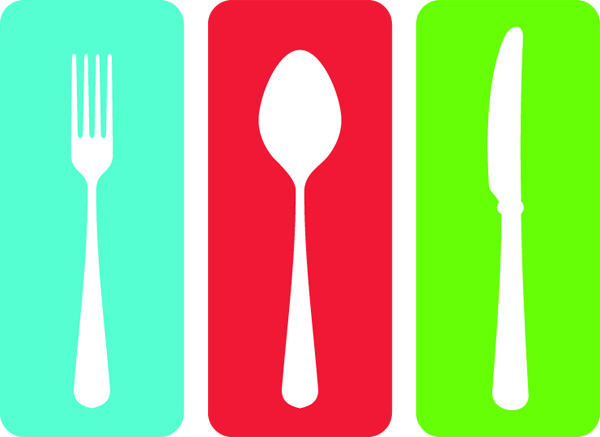A team of white coats from Oxford University have published findings that will no doubt complicate your already muddled understanding of dieting. In Flavour Journal, the Brits reveal that taste, craving, and satisfaction of certain foods are determined by the manner in which they are served. Hors d’oeuvres are consumed more quickly when served on red plates, yogurt tastes better on a white spoon, and cheese tastes saltier when eaten off a knife. These findings, while great cocktail party fodder, could have a profound affect on your personal diet.
Researchers Vanessa Harrar and Charles Spence lead the study and used variables like weight, size, color, and shape of cutlery to determine whether or not sensory cues from earthenware influenced eating. “The results revealed that yogurt was perceived as denser and more expensive when tasted from a lighter plastic spoon,” they said. “Food was rated as being saltiest when sampled from a knife rather than from a spoon, fork, or toothpick.” These seemingly trivial findings show that how we eat could be just as important as what we eat.
According to the Oxford team’s lengthy report, the results therein could one day help people lose or gain weight simply by manipulating the eating experience. “One area for future research would be to look at how the effects of taste perception can be used to predict how much people eat or how much salt people add to their meal (if they are eating with a ‘salty’ blue knife from a ‘salty’ blue bowl).” Could obese people employ specially colored and weighted serving utensils to help them eat less and lose weight? Binge eating just became an official mental illness, food addiction is a legitimate problem, and obesity is now a certified disease, so Americans need all the help they can get.
The only problem with these findings is that the positive behavioral eating changes brought on by certain cutlery might be hindered when the subject knows her eating experience is being manipulated. However, the underlying message of the report is that environmental change gets us out of our comfort zone, and heightens awareness of subconscious habits. Per the report, “Environmental changes force people to break routine, which therefore generates the possibility of making changes to their consumption behaviors.”
While the study may not totally revolutionize the way we eat, it does encourage a dialogue about our personal relationship with food. If you’re struggling to lose weight, think about what you use to eat and where you’re eating. The setting you feel most comfortable in—home, the office, your favorite restaurant—could be making you overeat. When you get out of your eating comfort zone, you’ll probably think and eat more analytically, which will aid in your quest to lose weight.
Also Read:
The Benefits of a Small Eating Plan

